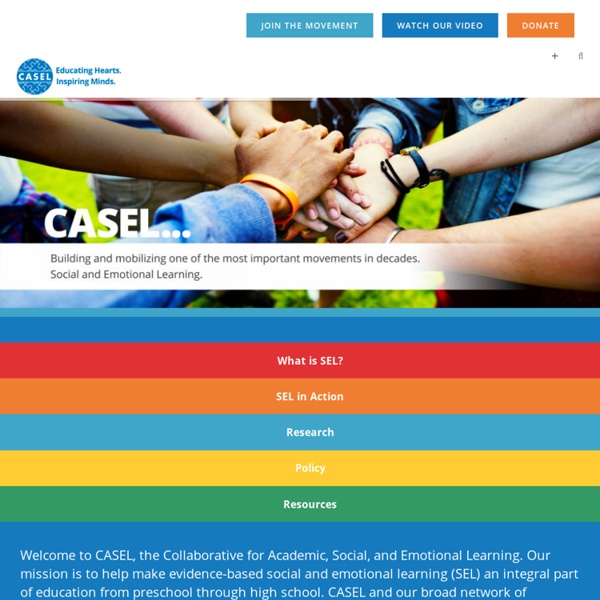



The most interesting line in Obama’s Howard speech was about empathy, not ‘blackness’ President Obama's speech at Howard University's commencement on May 7 was full of advice on civic engagement, black history and democracy. (The Washington Post) In the next few dizzying weeks, when one public figure and elected official after another will don academic robes and stoles to deliver commencement speeches at colleges and universities across the country, some ideas will inevitably be repeated. Dream big. Work hard. To thine own self be true. Marketplace of Ideas The Garrison Institute's Initiative on Contemplation and Education, in collaboration with the Kirlin Charitable Foundation, recently convened the leadership forum Mindful Parenting: Conceptualization and Measurement. This event brought together researchers, clinicians and others interested in and working with family intervention programs. The aim of the meeting was to address measurement issues around the topics of mindful parenting and reflective functioning in parenting, in order to develop effective measurement systems for use in research. During the three days of the meetings, the group spent the majority of their time together in group discussion, sharing one another's work involved, raising pertinent issues to be addressed during future clinical trials and research, and considering the questions, "What is mindful parenting? And what indicators of mindful parenting are evident in parenting behavior?"
A Parent's Resource Guide to Social and Emotional Learning Encouraging Kindness and Empathy Cultivating Kindness and Compassion in Children (Center for Child and Family Well-Being, University of Washington, 2014) This summary of a public lecture by Kimberly Schonert-Reichl underscores the importance of promoting social and emotional learning, reviews some of the research about cultivating kindness and compassion in children, and discusses five practical strategies that parents can try. Back to Top Cultivating Perseverance and Resilience Carol Dweck on the Power of "Yet" (GreatSchools, 2013) Stanford University professor Carol Dweck, research pioneer on “fixed” versus “growth” mindsets, discusses how a simple change of language can inspire children to think differently about their capabilities.
NASP 2012 Annual Convention Professional growth educational sessions were selected to represent the range of professional practice domains for school psychologists that are contained in the Model for Comprehensive and Integrated School Psychological Services. School psychologists are encouraged to review the domains, identify areas in which you need professional development, and select sessions that meet these needs. Building skills across all domains supports comprehensive practice, national certification, and ethical standards. A brief self-assessment tool and additional information on the NASP Practice Model and NASP Standards are available at www.nasponline.org/practicemodel.
Donald Trump isn’t empathetic. Is that a problem? Donald Trump has cleared every electoral hurdle before him in this presidential race. He went from 1 percent, literally, to the top of the polls. He beat 16 other people for the Republican nomination. He finds himself in a statistical dead heat with likely Democratic nominee Hillary Clinton. And, he has done it all by being himself: brash, bold, controversial and unapologetic. Recycling Symbols on Plastics - What Do Recycling Codes on Plastics Mean Sometimes it seems like modern America is one colossal plastic palace. The versatile material is in our cars, toys, packaging, clothing, home goods, food utensils, medical devices and so much more. It is also littering our streets, clogging our waterways and choking marine life. Many plastics can be readily recycled, but how do consumers make sense of all the different types and rules? Number 1 PlasticsPET or PETE (polyethylene terephthalate) Found in: Soft drink, water and beer bottles; mouthwash bottles; peanut butter containers; salad dressing and vegetable oil containers; ovenable food trays.Recycling: Picked up through most curbside recycling programs.Recycled into: Polar fleece, fiber, tote bags, furniture, carpet, paneling, straps, (occasionally) new containers PET plastic is the most common for single-use bottled beverages, because it is inexpensive, lightweight and easy to recycle.
Calm is free for classrooms In today’s rapidly changing world, children face unique social and emotional challenges. Kids are experiencing greater pressures earlier in life, and feel more stress and anxiety than ever before. What if their school day began with a few moments of quiet and stillness? Numerous studies have shown the many benefits of teaching mindfulness to children. How to Effectively Develop Social-Emotional and Reflection Skills The most important part of any social-emotional learning (SEL) or social-emotional character development curriculum (SECD) is skill development. But the formal lessons only serve to introduce the skills. Whether or not the skills are learned and generalized depends on the pedagogical procedure used. Here are some tips for building any SEL skill in effective ways: Introduce the skill and/or concept and provide motivation for learning; discuss when the skill will and will not be useful.